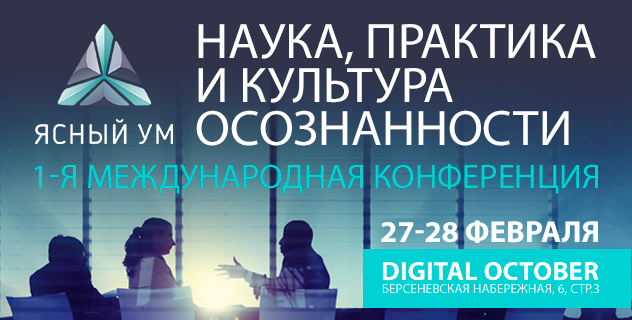The Crystal Mind conference’s organizers

Special Russia Issue Guest Editor’s Note:
To me the Crystal Mind Conference is one of the brightest and most interesting consciousness-related events in Russia. For my country, it is one of the first attempts to collectively pioneer mindfulness in a systematic and professional manner, with skillful media coverage, and a broad range of speakers-participants, attempting to jumpstart a mindfulness revolution here.
One of the features of the conference is that mindfulness is understood in a …

